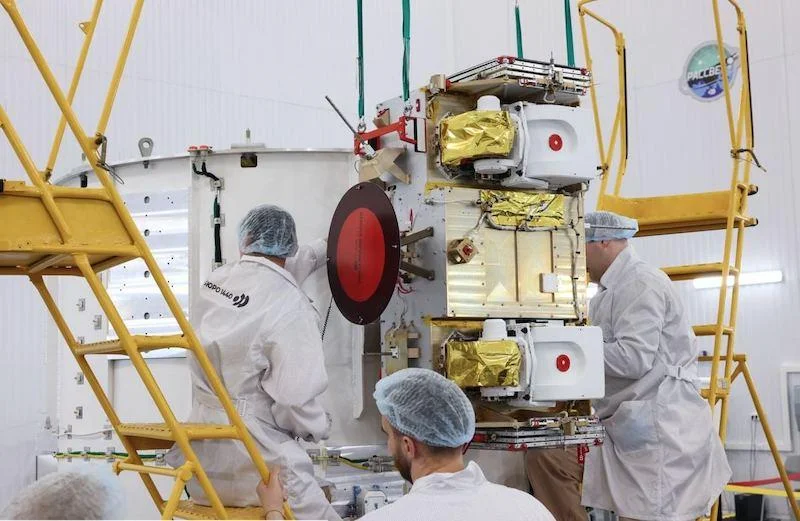
Russia Aims for Space Comeback with $56B Program, Starlink Rival
Russia is making a bold move to regain its prominence in the space race with a massive $56 billion space program. The initiative, spearheaded by Roscosmos, aims to address shortcomings and compete with leading space nations. Key areas of focus include developing reusable launch systems, deploying multi-satellite constellations, and establishing a presence on the Moon, all while facing challenges from international sanctions.
Prime Minister Mikhail Mishustin unveiled the ambitious plan, emphasizing the need for more practical objectives in crewed space missions. This comes amid criticisms that cosmonauts' activities lack real-world applications. Mishustin also acknowledged Russia's lag in payload launch costs, pushing for the development of innovative and reusable systems.
A significant aspect of the program is the development of a Russian alternative to SpaceX's Starlink, dubbed "Rassvet" (Sunrise), by Bureau 1440. "We will offer our response to Starlink with the Rassvet project," said Roscosmos head Dmitry Bakanov. This project aims to provide low-Earth orbit broadband communication. The first multi-satellite launch to support the operational constellation is slated for this year, with commercial services expected by 2027, eventually encompassing 292 spacecraft for global coverage. Two Rassvet test missions have already demonstrated 5G standard signal communication and laser communication between satellites.
Vitaly Yegorov, a Russian space specialist, highlighted the unprecedented role given to private companies like Bureau 1440 in this space endeavor. This shift signifies a potential departure from previous approaches.
The program also includes enhancements to the GLONASS satellite navigation system, aiming to improve its signal accuracy to 2.5 meters. Furthermore, it envisions a Moon-based nuclear power station as Russia's contribution to the International Lunar Research Station (ILRS), planned in collaboration with Beijing by 2036. A new Spektr-UF space-based telescope is also in the works, intended to replace the Spektr-RG observatory after Germany ceased its contribution to the project following the invasion of Ukraine.
Roscosmos is exploring reusable vehicles like methane-powered Amur SPG medium-lift rocket and the Krylo-SV gliding demonstrator.
The plan faces considerable hurdles, notably the impact of international sanctions imposed on Russia after the annexation of Crimea and the full-scale invasion of Ukraine. These sanctions have severely hampered Russia's space capabilities.
Despite the challenges, this ambitious $56 billion program signals Russia's intent to reclaim its position as a major player in the space industry. Will Rassvet effectively challenge Starlink? Can Russia overcome the obstacles posed by sanctions to achieve its space ambitions?
Share your thoughts and predictions in the comments below.